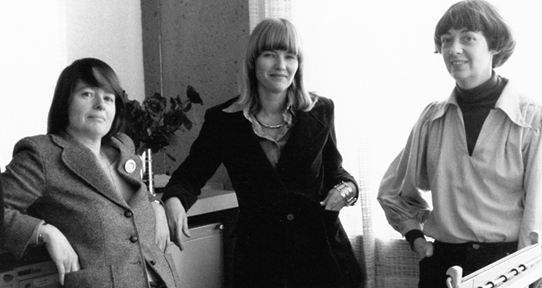Women's Studies to Gender Studies

Gender studies is a serious academic discipline, with courses and programs at North American universities for almost 40 years. It is one of the most dynamic new fields of research and scholarship.
The University of Victoria is widely recognized as having one of the best undergraduate gender studies programs in the country. UVic gender studies instructors have won teaching awards and prestigious research grants in recognition of their excellence and commitment.
In response to student demand, women's studies courses were first offered at UVic in 1979. In 2016, the department name changed to the Department of Gender Studies. Today, you can follow an honours, major or minor/general program in gender studies, or take one or more courses as electives.All UVic students are welcome in gender studies. You can choose from courses based on a broad range of feminist knowledge that includes Indigenous women's writing and film, the medicalization of sex, feminist perspectives on popular culture, gender and international development, queer studies, the construction of masculinities, human rights and globalization, anti-racist education and activism, girlhood studies, international trafficking in women, and gender, nation and war.
Department Mission Statement
The Department of Gender Studies at UVic actively pursues social justice. With attention to networks of power and how power circulates, we examine the relationships between gender and other socially constructed categories (e.g., race, class, sexuality, and other important locations). This examination is undertaken in the context of ongoing (de)colonization, neoliberal capitalism, globalization, transnationalism, and environmental degradation. Through our myriad forms of teaching, research, and community engagements, we mobilize tools of interrogation, resistance, and transgression. Our work is guided by an ongoing process of theorizing, practice, and critical reflection. At the forefront of change, we proceed with an ethics of care and accountability.
